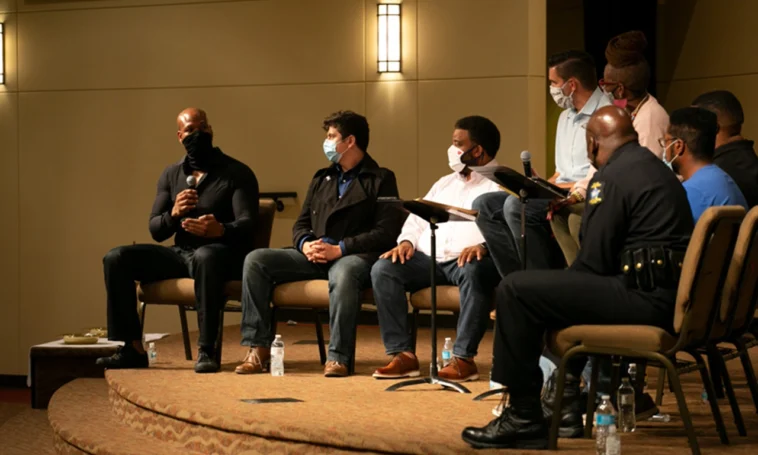Focus group of Black men criticize the Democratic Party. The focus group’s comments highlight the complexities of political messaging and the need for politicians to understand and respect the diverse experiences and perspectives within the Black community. The Democratic Party’s reliance on pandering and assumptions about Black men’s experiences has led to a disconnect between the party and its constituents.
The participants’ statements also underscore the importance of economic empowerment and family values in the Black community. Rashad’s emphasis on the value of Black men in the household and their desire to work and provide resonates deeply. It is a testament to the resilience and determination of Black families, who have historically faced systemic barriers to economic mobility.
Moreover, the focus group’s critique of Republicans’ lack of understanding of minority struggles and opportunities is a stark reminder of the ongoing struggles for racial equity in the United States. The assumption that everyone has equal access to resources and opportunities is a harmful myth that ignores the historical and systemic factors that have led to ongoing racial disparities.
“The assumption that every Black male youth is an automatic victim due to either systemic racism or factors outside of their control,” Jeremy, a 34-year-old microbioligist from Georgia, said.
The focus group’s comments come at a critical time in American politics, as the country grapples with issues of racial justice, economic inequality, and political polarization. The Democratic Party’s efforts to regain the trust of Black voters, who have historically been a crucial constituency for the party, will require a more nuanced understanding of the community’s experiences and concerns.
In recent years, there has been a growing recognition of the need for more diverse and inclusive political representation. The election of Black politicians like Senator Raphael Warnock and Representative Jamaal Bowman, who have been vocal about issues affecting the Black community, is a promising sign of change.
However, more needs to be done to address the systemic barriers that prevent many Black Americans from fully participating in the political process. Voter suppression, gerrymandering, and limited access to healthcare and education are just a few examples of the structural obstacles that must be dismantled.
Ultimately, the focus group’s comments serve as a reminder that political messaging must be grounded in a deep understanding of the communities being served. Politicians would do well to listen to the concerns and experiences of Black men, rather than relying on assumptions and stereotypes. By doing so, they can build trust and foster a more inclusive and equitable political landscape.
In conclusion, the focus group’s critique of political messaging highlights the need for a more nuanced understanding of the Black community’s experiences and concerns. By listening to and respecting the voices of Black men, politicians can build trust and foster a more inclusive and equitable political landscape. The ongoing struggles for racial equity and economic mobility in the United States demand nothing less.




Join the Community and Be a Part of the Conversation
You must be logged in or registered to post a comment.